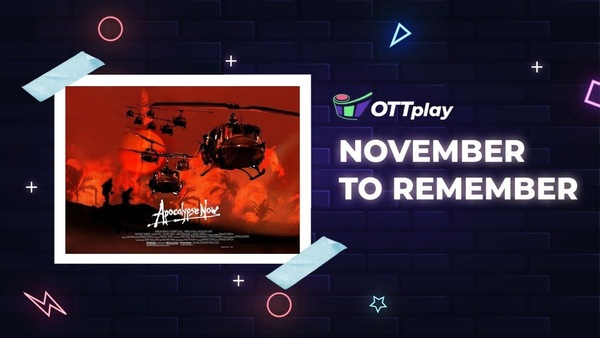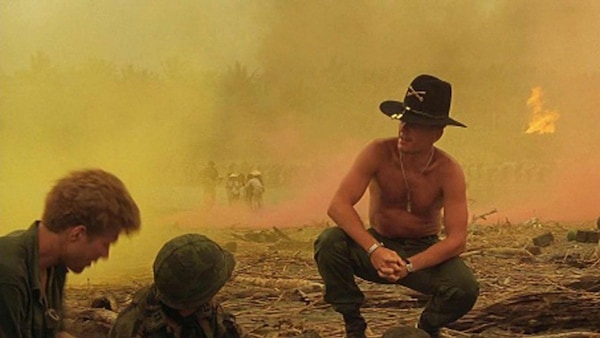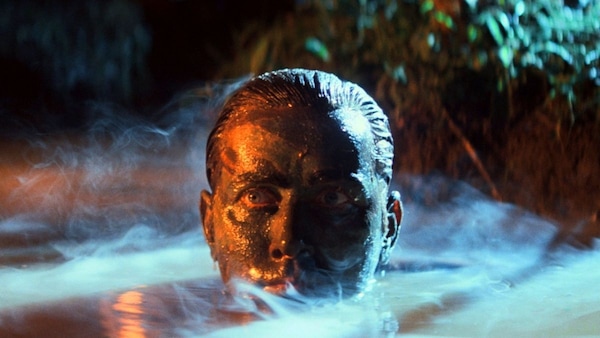November to Remember: Apocalypse Now, a film that embodies ’the heart of darkness’
Francis Ford Coppola risked his own mental and physical well-being, along with that of his crew, to create a film that could only be described as a once in a lifetime movie.

Last Updated: 11.21 PM, Nov 11, 2021
When Francis Ford Coppola’s The Godfather was released in 1972, it received rave reviews for its faithful adaptation of Mario Puzo’s novel. The film was akin to pages of the novel coming to life, which shouldn’t be surprising considering Puzo wrote the screenplay for the film as well. So when Coppola decided to write his own film based on Joseph Conrad’s most iconic work, The Heart Darkness, people may have expected something along the lines of The Godfather, in terms of reproducing a film true to the source material. However, the film merely borrowed a few elements from the novel, while almost everything else was original content Coppola had created for the film.
The farthest departure from the source material is that the novel is set in central Africa in the 19th century. The narrative, loosely based on King Leopold II’s atrocities and crimes against humanity along the Congo basin, is a critique of European colonisation. Coppola decided to use the Vietnam war as the setting for his tale —a decision that is well and truly justified, because a faithful adaptation of Conrad’s novel might not have translated well on screen. In fact, there is a 1993 film starring Tim Roth and John Malkovich, titled Heart of Darkness, that failed both critically and commercially.
Coppola’s vision for his 1979 film was for it to be a cinematic masterpiece. From its excellent background music to its stunning visuals, each frame was crafted to perfection to tell a story within a story, laying bare the moral degradation of society and its individuals. Martin Sheen’s portrayal of Captain Benjamin L Willard is one that depicts a man deeply disturbed by all that he has seen in Vietnam during the war. Willard’s PTSD (Post Traumatic Stress Disorder) is fleshed out in the opening sequence before he is sent on a mission deep into Vietnam along a river to find and extract a rogue US soldier, Col. Walter E Kurtz, played by Marlon Brando.
The plot is pretty straightforward and is hardly groundbreaking. But Coppola ensured that the journey Willard and his crew undertook invoked a sense of trauma in its viewers as the tragedy of the Vietnam War unfolded before their eyes. Coppola's choice of using the ‘gung-ho’ attitude by the Americans using napalm on Vietnamese civilians was a deliberate attempt to highlight the callousness they adopted during the war. The choice of music for these scenes, such as Wagner’s Ride of the Valkyries, and Robert Duvall’s portrayal of Lt. Col Bill Kilgore is Cooppala’s idea of a satire critical of the glorification of war. It subverts conventions of action war films, essentially disagreeing with the claims of Master Sergeant Farell from Edge of Tomorrow and glorious combat being the fiery crucible and great redeemer.

Through Willard and Brando’s Kurtz, Coppola puts focus on the depths humanity is capable of sinking. The river journey is an allegory to a path to the ‘heart of darkness’. The darkness being Kurtz’s barbaric rule over a local tribal community, similar to Kurtz from Conrad’s novel. The parallels between Willard and Kurtz in Apocalypse Now are peripheral to Coppola’s message that almost anyone has the potential to turn into a ‘Kurtz’. Coppola’s use of frames and lighting in the first act of the movie is a social commentary on humanity as a collective, whereas the third act is a commentary on the depths of an individual’s moral decay.
Over the decades, Apocalypse Now has been revered as one of the greatest films ever made. In fact, the remastered final cut of the film which was released for special screenings across the globe offered the complete cinematic experience Coppola originally envisioned. Many films such as Dune (2021), Watchmen (2009), and Kong Skull Island (2017 ) have paid homage to Apocalypse Now. While The Godfather trilogy will always be remembered as Coppola’s greatest works, a strong argument could be made in favour of this cinematic masterpiece.


